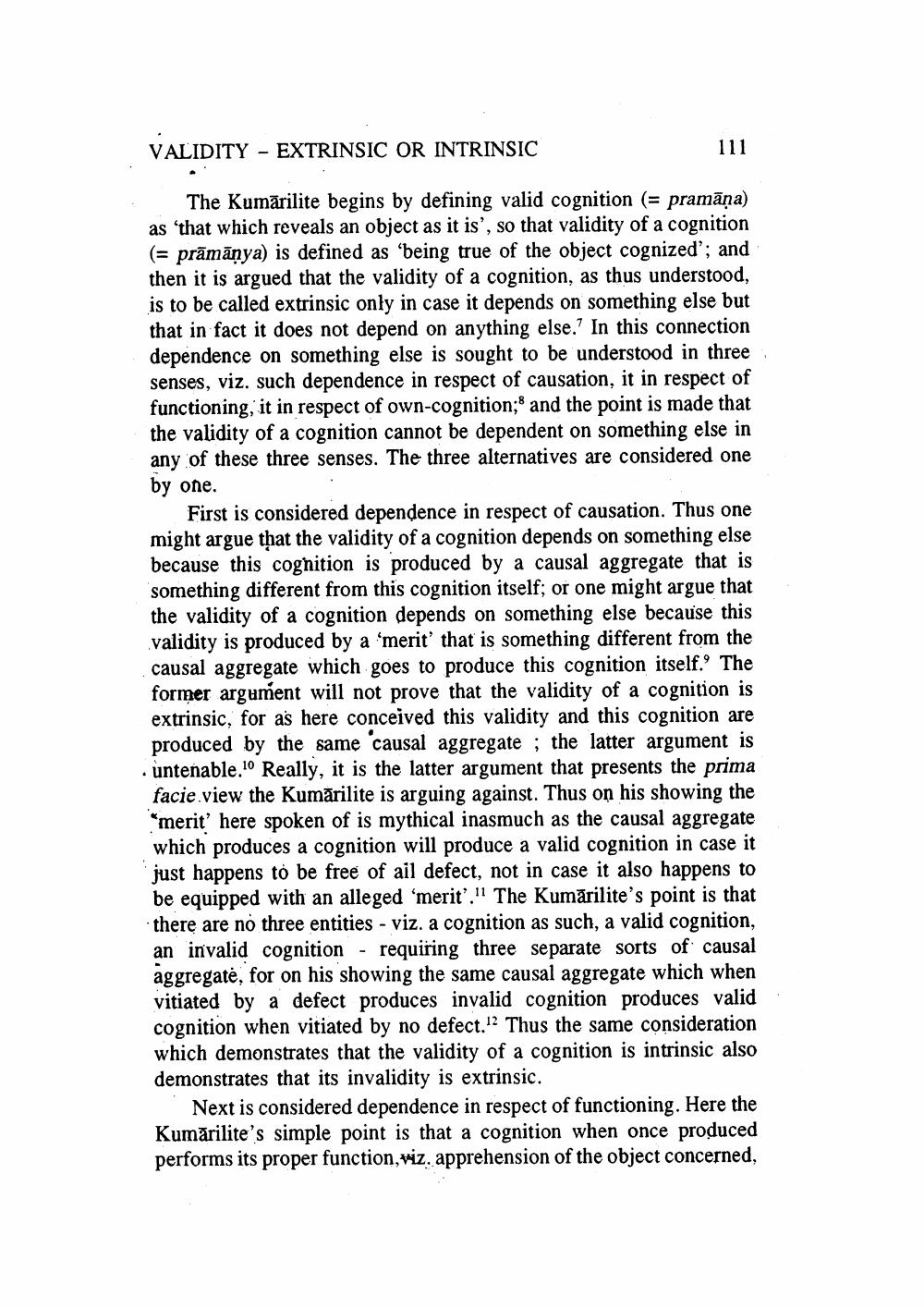________________
VALIDITY - EXTRINSIC OR INTRINSIC
The Kumarilite begins by defining valid cognition (= pramāņa) as 'that which reveals an object as it is', so that validity of a cognition (= prämanya) is defined as 'being true of the object cognized'; and then it is argued that the validity of a cognition, as thus understood, is to be called extrinsic only in case it depends on something else but that in fact it does not depend on anything else." In this connection dependence on something else is sought to be understood in three senses, viz. such dependence in respect of causation, it in respect of functioning, it in respect of own-cognition; and the point is made that the validity of a cognition cannot be dependent on something else in any of these three senses. The three alternatives are considered one by one.
111
First is considered dependence in respect of causation. Thus one. might argue that the validity of a cognition depends on something else because this cognition is produced by a causal aggregate that is something different from this cognition itself; or one might argue that the validity of a cognition depends on something else because this validity is produced by a 'merit' that is something different from the causal aggregate which goes to produce this cognition itself." The former argument will not prove that the validity of a cognition is extrinsic, for as here conceived this validity and this cognition are produced by the same causal aggregate the latter argument is . untenable. Really, it is the latter argument that presents the prima facie view the Kumarilite is arguing against. Thus on his showing the *merit here spoken of is mythical inasmuch as the causal aggregate which produces a cognition will produce a valid cognition in case it just happens to be free of ail defect, not in case it also happens to be equipped with an alleged 'merit'." The Kumarilite's point is that there are no three entities viz. a cognition as such, a valid cognition, an invalid cognition requiring three separate sorts of causal aggregate, for on his showing the same causal aggregate which when vitiated by a defect produces invalid cognition produces valid cognition when vitiated by no defect." Thus the same consideration which demonstrates that the validity of a cognition is intrinsic also demonstrates that its invalidity is extrinsic..
Next is considered dependence in respect of functioning. Here the Kumarilite's simple point is that a cognition when once produced performs its proper function, viz. apprehension of the object concerned,




